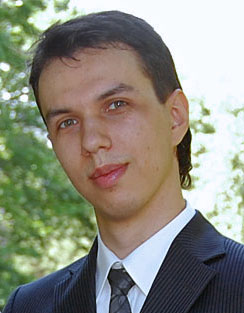Live Ratings of Chess Players' Earnings? |
| Written by Administrator | ||||||||||||||||||||||||||||
| Monday, 16 January 2012 | ||||||||||||||||||||||||||||
|
Originally published at ChessBase. - This time I played in the B section and got a prize! You know, I am real master who can boast having won a few thousand dollars throughout my chess career. Not all the IMs can say the same!
In 2010 Natalia Pogonina has penned an optimistic article about the possible sources of income of a person working in the chess industry and the level of earnings, titled Making money in chess. By the way, it has attracted more views (25,305 unique readers) than any other online column she has ever written, ahead of such hits as Vladimir Kramnik Facts (Humor) or Beating the ex-chess sex symbol. Generally speaking, this interesting topic is controversial and rarely touched upon in the media. Why can one check out the Wikipedia and find the career earnings of a tennis or poker star, while you can never get the same information about a chess player? For example, are you interested to know how much money Kasparov has made throughout his career, or what were the tournament winnings of Magnus Carlsen in 2011? I am. Of course, the idea of creating money chess ratings runs into some methodological difficulties. Naturally, the endorsement deals and chess projects not related to playing (e.g. ,writing books, giving lectures, etc.) wont be taken into account. But what about matches against computer programs? Or simultaneous exhibitions? On the one hand, those are directly associated with competitive play. On the other hand, any chess fan would tell the difference between, lets say, getting $1,000 for playing a friendly blitz game against a business person and earning it by winning a Swiss open event that runs for 9 days. The first idea that comes to the mind is the simple binary criterion: a tournament can qualify if and only if it is FIDE-rated. However, some important tournaments in blitz/rapid/etc. are not (yet) rated, so something has to be corrected in this definition. Or here is another case: lets say there were three teams that won, correspondingly, gold, silver and bronze at the Chess Olympiad. The first team didnt get any additional prizes. Every member of the second team got $25,000 from its national chess federation. Every member of the third team received a car from its countrys government. Now do we convert the value of the car into money? Will it be fair to place members of the teams that got silver and bronze higher on the money ratings as compared to the people who won gold? Nonetheless, lets not go into such details yet. The key problem is that as of now no one is accumulating and publishing the relevant data. In some super tournaments the information on appearance fees and prizes is not even available to the public. The only way to find out is to approach a grandmaster and ask how much he has earned. Needless to say, coming up to someone and inquiring: John, now tell me what your last paycheck was?!, seems to be a weird thing to do. Even if one tries to create such a list, most of the people featured there probably wont be motivated to provide the information, because they will be either lazy, or consider it to be too confidential. It might also be connected with the mentality. Many chess players have been born into families of intellectuals where money talks are considered to be dirty and not appropriate for a decent person. Or are they just not paying taxes? After having pondered for some time how to implement the idea of maintaining a live list of chess earnings, the following procedure was worked out: 1. First of all, we are interested in the earnings of chess celebrities. Few people care how much the IM (whom I introduced to you at the beginning of the article) makes a year. One should cooperate with organizers of top chess events and get the information from them. I doubt they will be unwilling to share it, since it will serve as additional promotion of their events and sign of status. 2. Every now and then top players compete in non-elite events that dont have the proud prefix super. The introduction of money chess ratings will motivate them to update the lists as needed. Lets say grandmaster A has earned $25k by a mid-table finish in a super tournament, while you, grandmaster B, won three $10k open competitions that havent been featured in the rankings. You will probably become upset, and your ego will make you contact the publisher and inform him that you deserve a higher rank.
What do you think?
In chess he is a Russian candidate master, author, husband & manager of grandmaster Natalia Pogonina.
Write Comment |
||||||||||||||||||||||||||||
| Last Updated ( Monday, 16 January 2012 ) | ||||||||||||||||||||||||||||
| < Prev | Next > |
|---|








